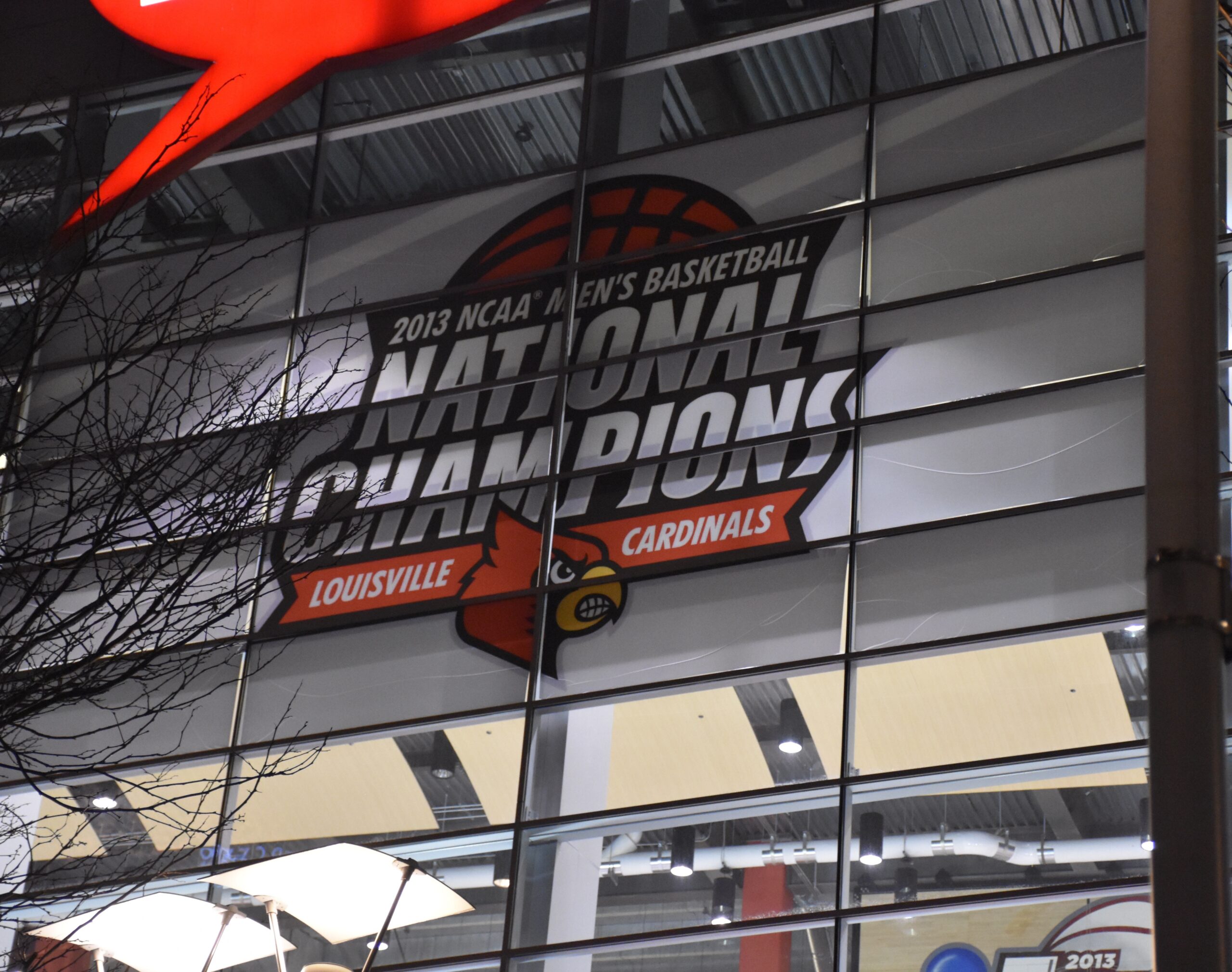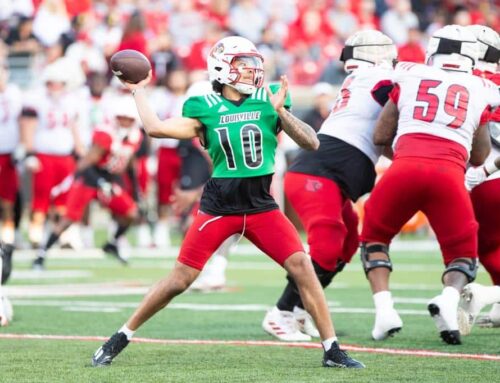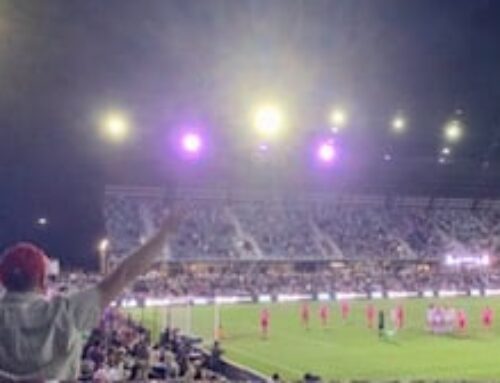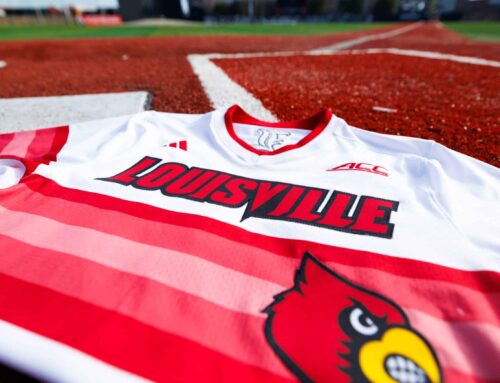By Dalton Ray —
Louisville’s worst nightmare came to life when the NCAA ruled to take away their 2013 national title Feb. 20. They brought out the erasers and cleared U of L from the record books from the 2011-14 seasons — the darkest day in Louisville athletics to date.
The day Louisville fans anticipated since October came three days later when Yahoo! Sports leaked an FBI report on corruption in men’s college basketball. The release showed some of the biggest schools in the nation were involved with paying players.
In terms of the banner coming down, everything has been said. Some say to continue to fight the NCAA in court. Some point to the hypocrisy of the NCAA, comparing Louisville’s case to North Carolina’s exoneration for academic fraud. Still others say move on and start new.
No matter which side you’re on, one thing that remains clear. The NCAA set the precedent on how to handle scandals — roll the dice and make the NCAA do the work.
Louisville took all precautions to save the title. The school worked with the NCAA during the whole process, assigned self-imposed sanctions including a 2016 postseason ban and removed administration—albeit after another scandal.
U of L jumped ahead of the scandal and still lost everything.
On the opposite side, there is UNC.
The school offered easy-pass, no-show classes for more than 10 years. Rashad McCants, a member of the UNC 2005 national championship team, admitted he took substandard classes and tutors did much of his classwork.
The NCAA’s investigation started in 2011 and ended in October 2017. North Carolina didn’t impose sanctions and turned a blind eye to the academic fraud. UNC insisted their easy-pass classes weren’t the NCAA’s concern. When the NCAA said otherwise, UNC pivoted and said those classes were available to everyone.
The NCAA ruled since the classes weren’t just for student-athletes, they couldn’t punish North Carolina and the Tar Heels skated free on a loophole.
The two schools approached their scandals very differently and had opposite outcomes. Nervous programs have taken notice.
The other shoes drop
Now, the more pressing issue: The FBI investigation.
Some of the biggest schools in the nation were named in the report (Duke, UNC, Kentucky, Michigan State and more) leaked Feb. 23. Beyond naming schools, the documents provided spreadsheets listing how much the athletes were paid.
At the center of these documents is former NBA agent Andy Miller, his business associate Christian Dawkins and the sports agency ASM Sports.
This information is only a small portion of what is to come from the FBI — making coaches, players and programs nervous.
Hours after the release of the FBI documents, more information — including email exchanges — shed more light on the pay-for-play dealings.
The news-filled Friday couldn’t end without one more bombshell. Just before midnight, wiretaps reportedly show Arizona’s head coach Sean Miller discussing paying $100,000 for the services of Arizona freshman DeAndre Ayton.
The FBI report showed Michigan State star Miles Bridges’ mother received several hundred dollar payments.
With the college basketball world watching, No. 2 Michigan State and No. 14 Arizona rolled the dice and ruled their future 2018 NBA draft picks eligible to play.
Three more of 2018’s biggest stars (Duke’s Wendell Carter, Kentucky’s Kevin Knox and Alabama’s Collin Sexton) allegedly met with Dawkins. This trio didn’t receive any payments according to the documents, but may have received other improper benefits such as a free dinner — which against the NCAA rules.
What did the three schools do? Cleared the student-athletes eligible. Only two current players named in the report have been ruled ineligible — Texas’ Andre Davis and USC’s Bennie Boatwright.
Attempting to do the right thing has now been thrown out the window due to the NCAA.
If impermissible benefits are proven, all players will be deemed ineligible. If the schools play ineligible players, then all games they played must be vacated, according to the NCAA rules.
In U of L’s appeal, the school argued players that received improper benefits could have been reinstated. The NCAA denied that argument, saying the reinstatement process isn’t a guarantee.
Applying the same standards that were placed on U of L, the NCAA should vacate all records of teams with a player that was given money. Just looking at last season, that would include Kentucky (Bam Adebayo allegedly paid $36,500), NC State (Dennis Smith allegedly paid $43,500) and many others.
No one knows how the FBI investigation will continue to shake the world of college basketball and college athletics. It will take years. The NCAA is stepping into uncharted territory as it seems to have 20 or more universities committing violations.
The University of Louisville may have been in the spotlight for the FBI’s investigation since October, but the beam is widening to the schools who have been dreading this day for months.
You can follow Dalton Ray on Twitter @dray5477.
File photo / The Louisville Cardinal





